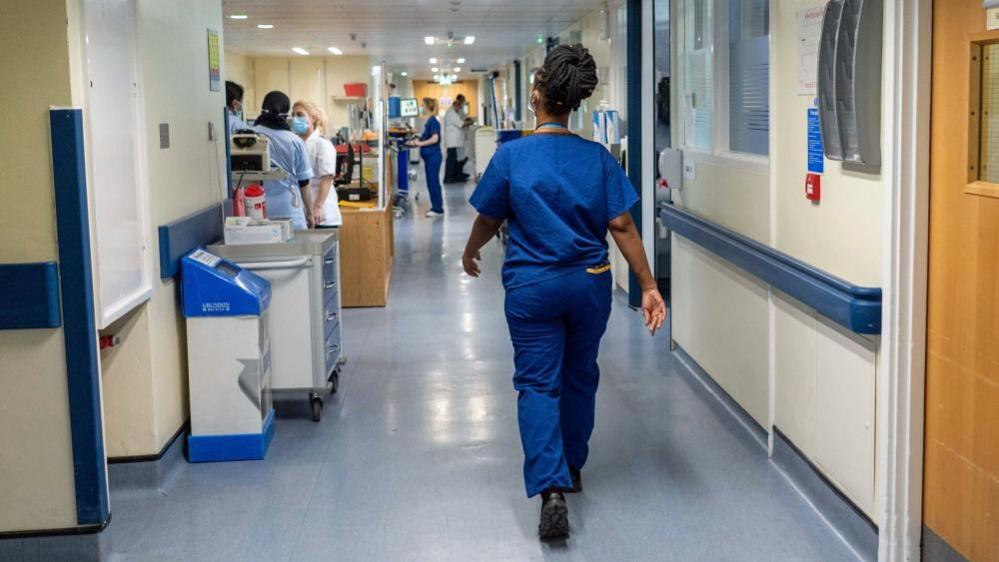Funding NHS facilities with private finance a breach of manifesto, Labour MPs say

- Published
Nearly 40 Labour MPs have warned the government would "renege" on its manifesto if it went ahead with proposals to use private finance to fund NHS facilities.
The government has said it would consider using a combination of taxpayer money and private finance to build new Neighbourhood Health Centres in every community.
In a private letter to Chancellor Rachel Reeves, seen by the BBC, 38 Labour MPs pointed to the party's manifesto promise that the NHS would "always be publicly owned and publicly funded".
A government spokesperson said funding for the health centres "will build on lessons learnt from past and current models".
The Labour MPs say that, "At a time when trust in politics is at its lowest, it would be very damaging for the government to renege on this promise".
The letter, which is signed by MPs mostly from the left of the party, goes on: "We are asking you to learn from the mistakes of the past. We must reject the notion that private finance can be used to build public services in a way that can be to the long-term benefit of the public.
"We ask you to please drop any plans for new private finance in the NHS from the Autumn Budget and any future policy."
One of the signatories, Cat Eccles, said: "I worked in the NHS for over 20 years and I saw firsthand the damaging effects of PFI on NHS trusts. Poor quality buildings with leaking roofs, inadequate layouts in clinical spaces, and spiralling debts that become impossible to tackle.
"In some cases the taxpayer is footing the bill for 10 times the cost of the original projects, leaving the NHS struggling to cover costs for staff and clinical services.
"This is unsustainable and we can't keep kicking the cost down the road. The NHS needs to be publicly funded and publicly owned to protect it now and for the future."
Other Labour MPs disagreed.
Josh Fenton-Glynn, who worked on the General Medical Council before becoming an MP, told the BBC: "I'm more worried about the deal than the mechanism for building. Private finance is often used to put up NHS buildings. The problem comes if the public gets a bad deal."
In its NHS 10 Year Plan the government said it would consider using private finance to build health centres and promised to "learn from previous experience with the Private Finance Initiative (PFI)".
The document says the "intentions [of PFI] were good and countless patients, visitors and staff have benefited" but in other cases it was "a costly mistake".
Under PFI deals, private consortiums build facilities such as schools, hospitals and roads, in return for regular payments over as many as 30 years.
A government spokesperson said: "This government is determined to shift health out of hospitals and into the community as set out in the 10 Year Health Plan.
"As set out in our 10 Year Infrastructure Strategy, we are exploring the feasibility of using new Public Private Partnership (PPP) models for taxpayer-funded projects in very limited circumstances where they could represent value for money, such as in certain types of primary and community health infrastructure or for decarbonising the wider public estate.
"The design and development of any future PPP models will build on lessons learnt from past and current models."
Sir Keir Starmer said "protecting" and "rebuilding" the NHS would be a "fundamental principle" of next week's Budget.
"It'll be a Labour Budget with Labour values. It'll be based on fairness," the prime minister told reporters whilst travelling to the G20 in South Africa.
"And it will have absolutely in mind protecting our public services, particularly the NHS, cutting our debt, and dealing with the cost of living, bearing down on the cost of living."
He also said the Budget would include protecting public services, cutting government debt, and dealing with the cost of living.